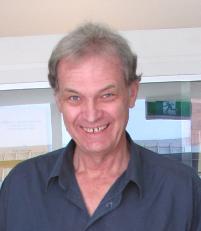UK journal prints Aussie analysis of Climategate Mark II
Published on 28 July, 2010
A British law journal has published an Australian analysis of what could be called ‘Climategate Mark II'.
CQUniversity scientist and lawyer Dr John Abbot and Yeppoon-based biologist Dr Jennifer Marohasy have been tracing continuing efforts to hide calculations behind the infamous ‘hockey stick' illustration of ‘unprecedented' climate change.
Show Transcript of Dr Abbot being interviewed on ABC Radio National's Counterpoint program
Climategate was sparked by emails leaked from the University of East Anglia's Climatic Research Unit (CRU) and UK resident David Holland has since been embroiled in a lengthy FOI process seeking to understand how the British Met Office has assessed global warming and causal relationships with greenhouse gas emissions.
"Evidence suggests both the CRU and the Met Office are part of a culture where institutional climate scientists are antagonistic towards disclosure of information," the authors state in their Environmental Law and Management journal article.
"This has serious implications for both the effective operation of FoI legislation and the openness and transparency of climate change assessments."
The Australian research outlines the amazing twists and turns of the Met Office's ‘concerted efforts' to prevent disclosure of information relating to the workings of the United Nation's Intergovernmental Panel on Climate Change (IPCC).
Despite ‘public interest' aspects of relevant legislation in favour of disclosure, the Met Office has claimed documents were personal, that emails were deleted, that participants believed correspondence was confidential and that disclosure would upset the IPCC and harm international relations.
"However much of the media coverage associated with what has become known as ‘climategate' also puts the case for disclosure not only because of the far-reaching consequences of the climate research, but also because of the need for public confidence," the authors explain.
"Emails revealed by a House of Commons Committee report show an antagonistic attitude towards public disclosure of information relating to climate change and the IPCC assessment process.
"It is clear ... the IPCC, the Met Office and the CRU have gone to great lengths to thwart the release of information.
"There is a culture of antagonism towards anyone who may wish to make independent appraisals of information relating to climate change."
Dr Abbot said the case was ongoing and that the Met Office refusal to provide information was only a first step in the legal process.
"Appeals can now be made to the Information Commissioner, the Information Tribunal and up through the court system," he said.
"There have been other recent cases in this area in the UK - one involved disclosing tree ring data from Queens University in Belfast. The Information Commissioner over-ruled the University decision not to disclose information."


